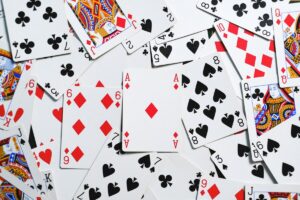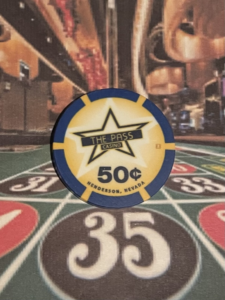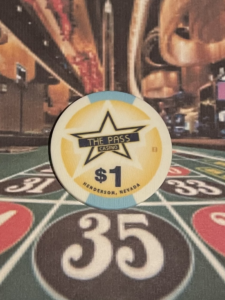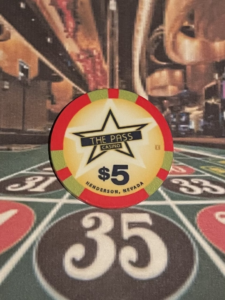 Charles Fox was a prominent, and fiercely radical, Whig politician of the late eighteenth and early nineteenth centuries. He was, in fact, the first British Foreign Secretary but, while he was a famous champion of civil liberty, he was an equally infamous drunkard, gambling addict and libertine. Indeed, Fox was said to have debts ‘like Caesar’s’ but, thanks in large part to his irresitable charisma, his political ambitions were hindered more by his hostility towards King George III than his financial situation.
Charles Fox was a prominent, and fiercely radical, Whig politician of the late eighteenth and early nineteenth centuries. He was, in fact, the first British Foreign Secretary but, while he was a famous champion of civil liberty, he was an equally infamous drunkard, gambling addict and libertine. Indeed, Fox was said to have debts ‘like Caesar’s’ but, thanks in large part to his irresitable charisma, his political ambitions were hindered more by his hostility towards King George III than his financial situation.
By 1772, while still in his early twenties, Fox had already accrued £20,000 in gambling debts, which he asked his father, Henry Fox, First Baron Holland, to pay off. Baron Holland died in July, 1774, but the previous November had agreed, once again, to pay off debts ‘not exceeding the sum of one hundred thousand pounds’ on behalf of his son. Simultanenously, Frederick Howard, Fifth Earl of Carlisle, stood Charles Fox security for an additional sum, somewhere between £14,000 and £16,000, including interest payments of up to £2,000 a year.
By 1775, Carlisle was no longer able to service the debt, which was the equivalent of approximately one-sixth of his personal annual income at the time, and was forced to mortgage his home in St. James’s Place, London, and retire to Yorkshire. That November, James Harris, First Earl of Malmesbury, wrote that Charles Fox, who was a personal friend, ‘was not worth a farthing’ and, a year later, ‘had spent £175,000’. Fox continued his lifestyle, unrestrained and unrepetant; he was declared bankrupt between 1781 and 1784. It was not until late in his life, after his friends and family freed him from debt and provided him with a comfortable income, that he finally abandoned gambling.
 Away from the world of online slots, as far as casino gambling is concerned, Edward Thorp is best known for his academic research into the application of probability theory to blackjack strategy, which eventually led to the publication of the ground-breaking book, ‘Beat the Dealer: A Winning Strategy for the Game of Twenty-One’, in 1962. Inspired by his observations while playing blackjack in Las Vegas, shortly after receiving a doctorate in mathematics from the University of California, Los Angeles in the late Fifties, Thorp discovered that by keeping track of the cards during the game a player can determine when the odds are most favourable.
Away from the world of online slots, as far as casino gambling is concerned, Edward Thorp is best known for his academic research into the application of probability theory to blackjack strategy, which eventually led to the publication of the ground-breaking book, ‘Beat the Dealer: A Winning Strategy for the Game of Twenty-One’, in 1962. Inspired by his observations while playing blackjack in Las Vegas, shortly after receiving a doctorate in mathematics from the University of California, Los Angeles in the late Fifties, Thorp discovered that by keeping track of the cards during the game a player can determine when the odds are most favourable.
In his seminal treatise, Thorp introduced the so-called ‘Ten Count’, which was the first mathematically proven, publicly available system for card counting. The Ten Count was only really applicable to single-deck games, which were commonplace in the Sixties, but spawned numerous other card counting systems, which are equally applicable to multi-deck games and have been used successfully by generations of blackjack players. Thorp is often called the ‘father’ of card counting; he was inducted into the Blackjack Hall of Fame in 2003.
By no means a ‘one-trick pony’, Thorp also turned his attention to roulette and, together with Claude Shannon, a.k.a. the ‘father of information theory’, co-invented the first wearable computer. Although strictly illegal in Nevada, the analog device, about the size of a cigarette, was tested in Las Vegas in 1961 and produced predicted improvement in the odds when playing roulette, but its invention was kept secret until 1966. The computer divided the roulette wheel into eight octants and attempted to predict not the exact number, but the octant, in which the ball would land, based on the speed of wheel and ball.
 The late Tommy Carmichael was a television repair man-turned-inventor, who devoted nearly twenty years of his adult life to devising innovative ways to cheat slot machines. Carmichael began his life of crime with a nuts-and-bolts device, known as a ‘top-bottom joint’, to which he was introduced in the early Eighties. A crude affair, consisting of a curved piece of metal and a guitar string, the top-bottom joint effectively short-circuited the coin hopper of older, electromechanical slot machines, causing an illicit payout. Carmichael was arrested, convicted and sentenced to five years’ imprisonment for using the device in Las Vegas in 1985.
The late Tommy Carmichael was a television repair man-turned-inventor, who devoted nearly twenty years of his adult life to devising innovative ways to cheat slot machines. Carmichael began his life of crime with a nuts-and-bolts device, known as a ‘top-bottom joint’, to which he was introduced in the early Eighties. A crude affair, consisting of a curved piece of metal and a guitar string, the top-bottom joint effectively short-circuited the coin hopper of older, electromechanical slot machines, causing an illicit payout. Carmichael was arrested, convicted and sentenced to five years’ imprisonment for using the device in Las Vegas in 1985.
He served just two years in prison but, on his release in 1987, slot machine had become more sophisticated. In response, Carmichael acquired a state-of-the-art machine and created a novel cheating device, known as the ‘slider’, or ‘monkey paw’, which was effective against the latest technology. Again employing a guitar string, together with a piece of sprung steel, the slider could be inserted into the payout chute, tripping a microswitch and causing the illegal release of coins from the hopper. If you think it is too difficult you can try your luck playing all slots games on the 1xbet page.
By the early Nineties, slot machine technology had moved on again, rendering the slider obsolete. Nevertheless, posing as a prospective buyer, Carmichael examined the inner workings of of a cutting-edge, computerised machine and devised a fresh device, known as the ‘light wand’. As the name suggests, the light wand employed a miniature light bulb powered by a camera battery – making it nigh on undetectable – and effectively ‘blinded’ the optical payout sensor when shone into the machine.
Carmichael was subsequently arrested in 1996, 1998 and 1999, on the latter occasion pleading guilty to running an illegal gambling enterprise, for which he was sentenced to time served plus three years’ probation. He died, at the age of 68, in 2019, but for the last 16 years of his life his name appeared on the Nevada Gaming Control Board List of Excluded Persons, a.k.a. the ‘Black Book’, so he was officially banned from every casino in the state.
Trusted casino chip connoisseur Gregg Fisher has been out and about again. It must be nice to have a passion that means that points of interest are all around you – and of course Nevada is the right place to be if those interests pertain to casinos and the all important chips that form the currency of the establishment.
 |  |  |
|---|
Above are images of the $.50, $1 and $5 chips (taken by Gregg) from the recently opened Pass Casino, which was formerly the Eldorado Casino. With a sportbooks, 6 table games (four blackjack tables, a roulette table and a craps table) and an impressive 350 slot machines there’s something for casino and sports fans alike.
DeSimone Gaming have made changes aplenty including a 24/7 sports bar and Emilia’s Café, as well as a new lounge, The Silver Bar.
With a rich history over the decades, opening first as the Wheel Casino in 1961, all the way through to the $7 million renovation that led to its latest incarnation, it will be interesting to see what the general public think of The Pass Casino. It opened on April 1st 2021.
